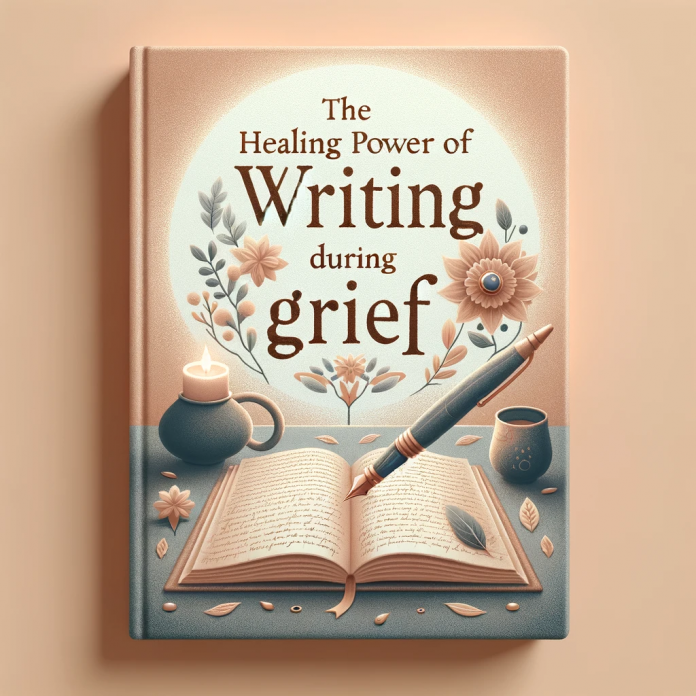Grief is a universal human experience, yet it is also one of the most personal and profound emotions we encounter. It can be overwhelming, isolating, and often, words fail to capture the depth of our sorrow. However, writing can serve as a powerful tool to navigate through this challenging journey. This article explores the healing power of writing during grief, offering insights into its therapeutic benefits and practical tips on how to incorporate it into your healing process.
Understanding Grief
Grief is a complex emotional response to loss, often associated with the death of a loved one. However, it can also arise from other significant life changes, such as the end of a relationship, loss of health, or a change in life circumstances. It is a deeply personal process, with no right or wrong way to grieve.
While grief is often associated with feelings of sadness, it can also manifest in a range of other emotions, including anger, guilt, fear, and even relief. These emotions can be intense and fluctuating, leading to physical symptoms such as fatigue, insomnia, and changes in appetite.
The Therapeutic Power of Writing
Writing has long been recognized as a form of therapy. It provides a safe space for expressing emotions, exploring thoughts, and making sense of experiences. When dealing with grief, writing can serve as a powerful tool for healing and growth.
Writing allows for the expression of emotions that may be difficult to verbalize. It can provide a sense of release, helping to alleviate the burden of unexpressed feelings. Furthermore, writing can help to organize chaotic thoughts, providing clarity and perspective in the midst of grief.
Benefits of Writing During Grief
Writing during grief can have several benefits. It can help to process and understand emotions, provide a sense of control, and facilitate healing and growth. Let's explore these benefits in more detail.
Firstly, writing can help to process and understand emotions. Grief can bring a whirlwind of emotions that can be confusing and overwhelming. Writing provides a space to explore these emotions, helping to make sense of them and understand their source.
Secondly, writing can provide a sense of control. Grief can often feel like a chaotic and uncontrollable process. Writing allows for a sense of agency, providing a means to navigate through the grief journey at one's own pace.
Lastly, writing can facilitate healing and growth. By expressing emotions and exploring thoughts, writing can lead to insights and revelations that can promote healing. It can also foster a sense of connection with the deceased, helping to maintain a sense of their presence and influence in one's life.
How to Use Writing as a Healing Tool
There are many ways to incorporate writing into your grief journey. Here are some suggestions to get you started.
- Journaling: This is a simple and effective way to express your thoughts and feelings. You can write about your day, your memories of your loved one, or your dreams and fears for the future. There is no right or wrong way to journal – it is a personal and flexible tool that can adapt to your needs.
- Letter writing: Writing a letter to your deceased loved one can be a powerful way to express your feelings, share updates, and maintain a sense of connection. It can also provide a sense of closure, especially if there were things left unsaid.
- Poetry: Poetry can capture the depth and complexity of emotions in a way that prose often cannot. It can be a creative and cathartic outlet for expressing grief.
- Storytelling: Sharing stories about your loved one can keep their memory alive and help you to process your grief. This can be done privately, or you can share these stories with others who knew your loved one.
Remember, there is no right or wrong way to use writing as a healing tool. It is a personal process that should be tailored to your needs and comfort level. Be patient with yourself and allow your writing to evolve with your grief journey.
Conclusion
Grief is a deeply personal and profound journey, one that can be overwhelming and isolating. However, writing can serve as a powerful tool to navigate this journey, providing a space for expression, exploration, and healing. Whether through journaling, letter writing, poetry, or storytelling, writing can help to process emotions, provide a sense of control, and facilitate healing and growth. So, pick up a pen or open a new document on your computer, and let the healing power of writing guide you through your grief.
Recommended Products
- Kefley Memorial "Until We Meet Again" Bracelet — A meaningful Morse code memorial bracelet for remembering a loved one.
- How to Go on Living When Someone You Love Dies — Practical guidance for navigating life after a significant loss.
- Healing After Loss — Daily meditations for working through grief one day at a time


-banner.png)





